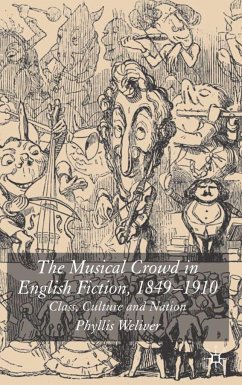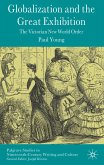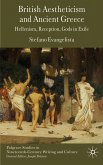This book provides insight into how musical performances contributed to emerging ideas about class and national identity. Offering a fresh reading of bestselling fictional works, drawing upon crowd theory, climate theory, ethnology, science, music reviews and books by musicians to demonstrate how these discourses were mutually constitutive.
Hinweis: Dieser Artikel kann nur an eine deutsche Lieferadresse ausgeliefert werden.
Hinweis: Dieser Artikel kann nur an eine deutsche Lieferadresse ausgeliefert werden.
'[ The Musical Crowd in English Fiction, 1840-1910 ] joins recent critical work... in moving the study of music and Victorian literature to new and provocative areas and will be of great interest to those who work in Victorian cultural studies and musicology.' - Laura Vorachek, Victorian Studies








